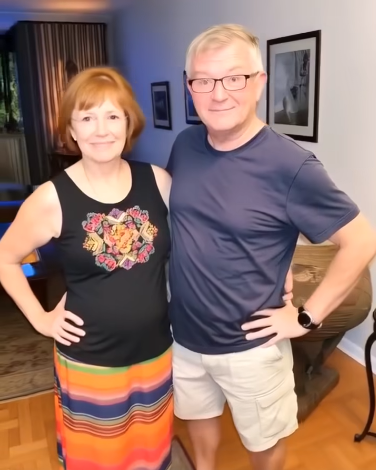“My Late Partner’s Parents Are Claiming His House – Here’s What Happened”

They Abandoned Him. Now They Wanted His House.
When Jason’s estranged parents showed up unannounced, demanding the house he left behind, Alice found herself at a crossroads she never thought she’d face. Still mourning the man she had loved for most of her life, she stood firm—willing to listen, but only if they could answer the question that haunted Jason to his final breath.
She remembered the beginning.
They were only 17 when Jason arrived on her doorstep, red-eyed and shaking, with nothing but a backpack and the echo of betrayal. His parents had thrown him out without warning, no explanation, no goodbye. Alice’s mother welcomed him without hesitation, and from that day forward, Jason became part of their family.
Over the years, Alice and Jason were inseparable. She built a career in HR, drawn to understanding people. He thrived in tech, solving problems like puzzles meant for him alone. Together, they navigated college, careers, adulthood—and eventually, a shared home and a life full of quiet, enduring love.
Then came the diagnosis: bone cancer. Four years of fear, treatments, and resilience followed. Alice took on extra work, covered the mortgage on the house Jason had purchased, and never left his side. Through it all, Jason held on to a single, unspoken hope: that his parents might one day come back—not for forgiveness, but for love.
They never did.
But one month after his funeral, they arrived—not with apologies, but with a lawyer. Jason’s mother, Susan, wore a smile too sweet to be sincere. His father, Charles, wasted no time. “We want the house,” he said flatly. Their attorney claimed they were entitled to it as next of kin—Jason had left no will.
But Alice had planned ahead. Before his death, Jason had transferred ownership to her. The house was hers—legally and emotionally. Still, she gave them a chance. They could buy it, she said, at the exact amount she had paid Jason—plus the years of mortgage she had shouldered alone. Charles balked, threatened legal action.
Alice didn’t flinch.
Instead, she handed them a letter—Jason’s final words to the people who had once called themselves his parents. In it, he offered forgiveness—but not affection. He named the pain they caused. He acknowledged their absence. And he left them nothing but truth.
As they read, their confidence faltered. Susan looked stunned. Charles said nothing. And when Alice asked the question Jason never got an answer to—“Why did you abandon your son?”—they gave her nothing but hollow excuses and shifting eyes.
Their lawyer, recognizing a lost cause, urged them to walk away.
And so they did—quietly, defeated.
Alone once more, Alice locked the door behind them. Her heart was heavy with grief, but unwavering in resolve. Jason was gone, but his memory, his love, and their home remained.
That house was no longer just bricks and mortar—it was a sanctuary. A monument to everything they had built together.
And now, finally, it was safe.
